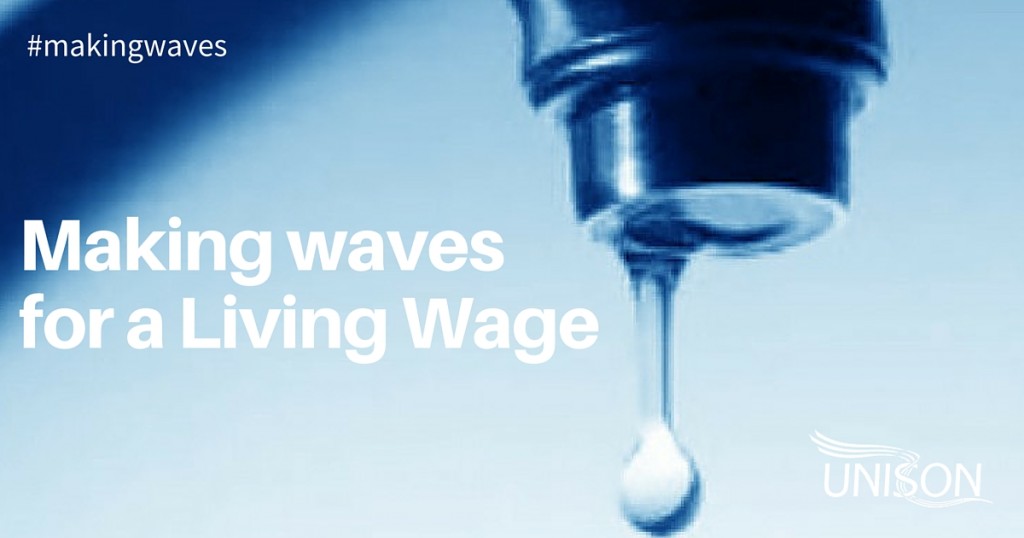UNISON has a long history of campaigning for a statutory Living Wage. It’s a campaign that matters a great deal to me, a great deal to our members, and a great deal to anyone who believes in a fair day’s pay for a fair day’s work.
Today we’re launching a new campaign – “Making Waves for the Living Wage” calling on all UK the water industry to sign up as accredited Living Wage employers with the Living Wage Foundation. (That’s the real living wage – that people can actually live on – not the government’s fake watered down living wage).

Research from the New Policy Institute found that less than 10% of employees in the water industry were paid below the Living Wage in 2014. I know that when I pay my water bill each month – and it isn’t getting any cheaper – I expect to see it spent on decent wages for vital staff in the water industry.
At a time when some of the most senior water company staff in the country are paid on average £816,000 a year (and some as much as £2.2 million a year) and when 18 privately owned water companies in England and Wales have retained excess profits of £1.2bn over the past five years alone, there should be a no reason why the water companies can’t pay those earning low wages a decent wage.
Customer call centre operators, catering staff, cleaners and security guards need to be paid the wages they deserve.
Fortunately the tide is turning in our favour.
Six major water companies have already signed up as living wage employers and nine others are engaging with the Living Wage Foundation on accreditation – all as a direct result of UNISON campaigning. Indeed many water companies have been getting their act together because they knew this campaign was coming.
We’re already making progress on the fight for a living wage in this most important of sectors, and with 51 MP’s having already signed EDM 1185 to support the campaign, we’re already making waves. If you want to ask your MP to sign up, you can do so by using this handy link.
As long as people working in our water industry are forced to work for low wages, there’s still so much to do.





